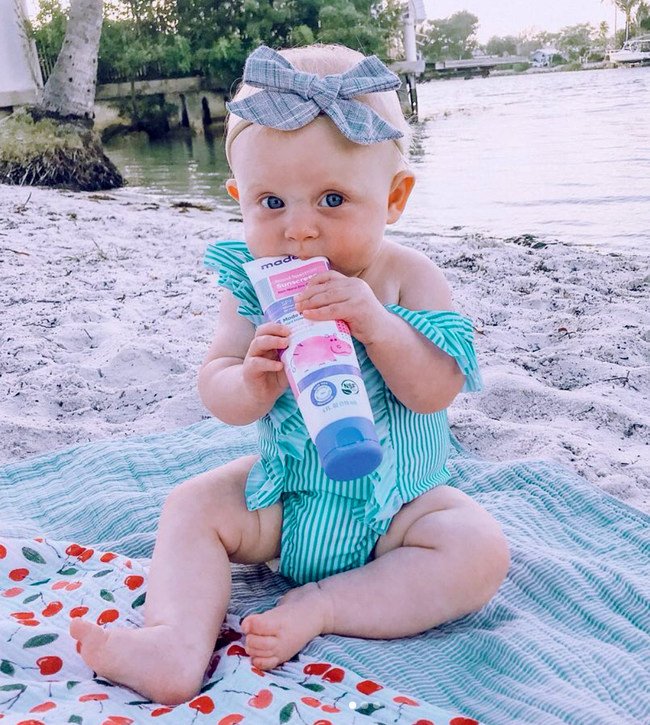Organic Baby Skin Care Brand MADE OF® Shares 3 Ways to Stop Killing Coral Reefs With Sunscreen
NEW YORK, June 12, 2019 /PRNewswire/ — Entrepreneur Igor Bekker is an advocate for stricter regulations in the skin care industry, and in 2018, he co-founded MADE OF®, a personal skincare brand that features an ecosystem of organic baby care products, certified to the NSF organic standard, verified by the EWG and USDA 100% Biodegradable Certified Sunscreen.

Advocates for safer sunscreen like Bekker urge consumers to make more mindful choices when it comes to their sun protection. There’s clear evidence that beachgoers using synthetic-based sunscreens have contributed to the bleaching of coral reefs, which is killing off large portions of major marine environments.
According to research published in 2015, the most common sunscreen ingredient, oxybenzone, is contaminating marine environments by exacerbating one effect of climate change: the mass bleaching of coral reefs. Couple that with the fact that 14,000 tons of sunscreen are dumped into the ocean via swimmers and wastewater every year, and it’s no wonder stories like “Half of the Great Barrier Reef Is Dead” have been making headlines.
Some governments have stepped up to lead the charge, including Hawaii, the Pacific archipelago of Palau and the Florida Key West, by banning the sale of sunscreens made with oxybenzone and octinoxate—another harmful contaminant.
MADE OF® believes everyday products should be safe not only for the consumer but also for the environment. He explains, “We have to recognize as a society that our advanced industries create convenience for us as consumers without minding the impact it may have on our environment.” He and his team are on a mission to provide better, safer baby skin care products, including a mineral-based, coral-safe sunscreen that’s made of biodegradable ingredients.
How can we mitigate the damage?
Bekker says we all have a responsibility to help protect the marine environment from harmful sunscreen ingredients, and he offers three simple tips for making a next beach trip a low- or no-impact visit.
1. Wear protective sun gear
Consider wearing a beach-approved long sleeve shirt or a wide-brimmed hat to protect you from the sun’s UV rays. You could also bring a large umbrella to shield you from the sun.
2. Read between the labels
Always read sunscreen labels and make sure the ingredients are clearly stated. Avoid synthetic-based sunscreens with oxybenzone and octinoxate, and choose mineral-based sunscreens instead, preferably with zinc oxide.
3. Look for independent tests and certifications
There are a lot of brands being sued over false marketing claims, so be sure to look for certifications from independent bodies who don’t have a bias in the product. Safer, more natural sunscreens like MADE OF Organic Baby Sunscreen SPF 30 should be certified by the USDA BioPreferred Program to be sure the ingredients are biobased and biodegradable.
Put consciousness over convenience
“With a greater awareness of how synthetic sunscreen negatively affects marine environments, we can prioritize consciousness over convenience and make choices that positively impact the future,” says Bekker. “By purchasing safer options for sunscreen, we can help mitigate the damage chemical-based sunscreens have on one of the most vital environments on Earth—the coral reef.”



Recent Comments